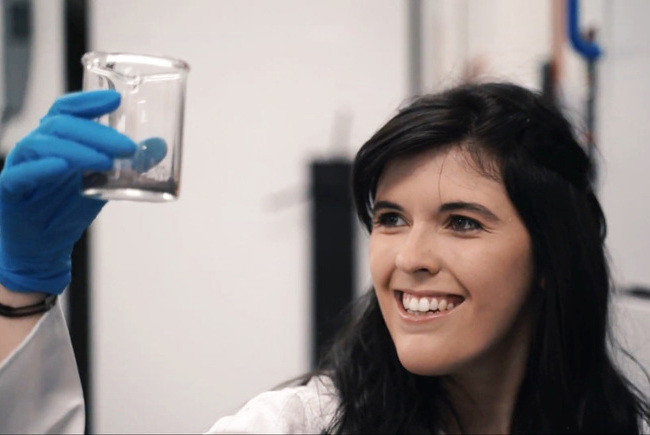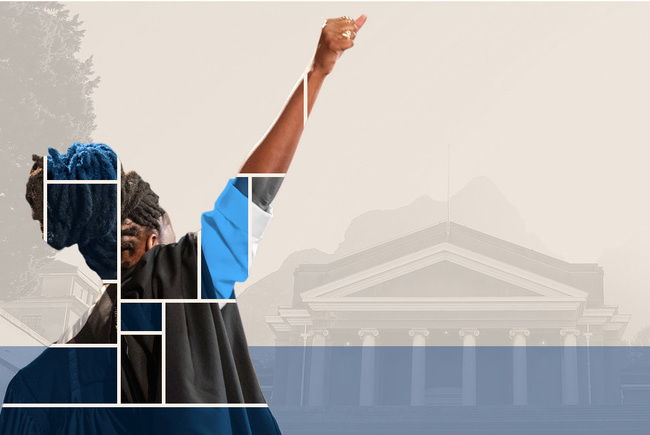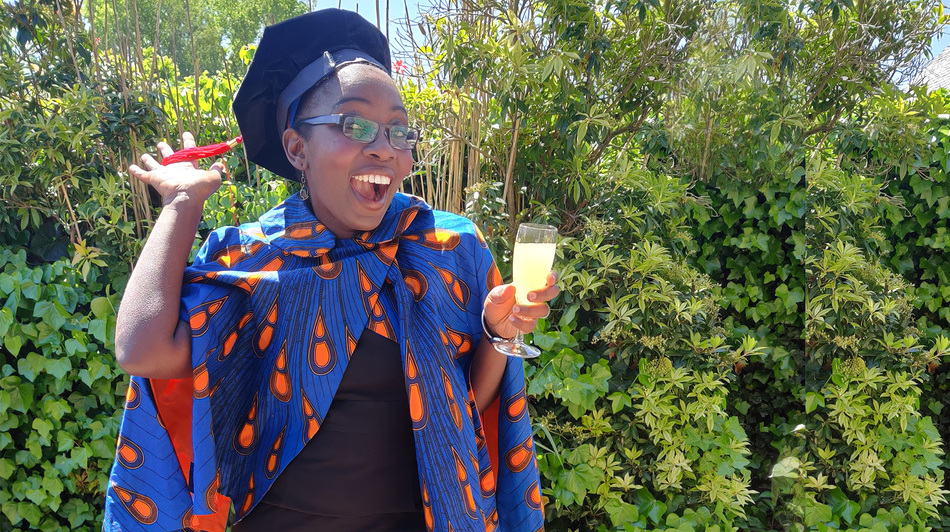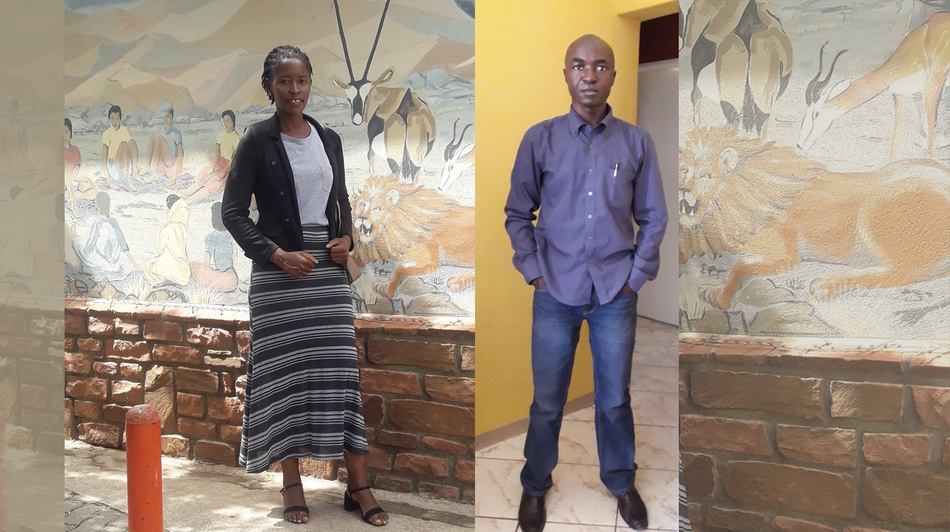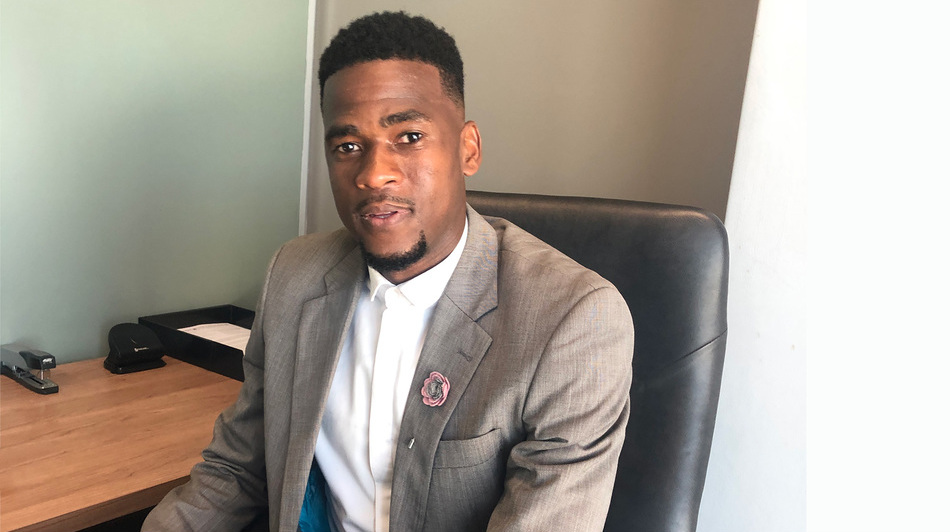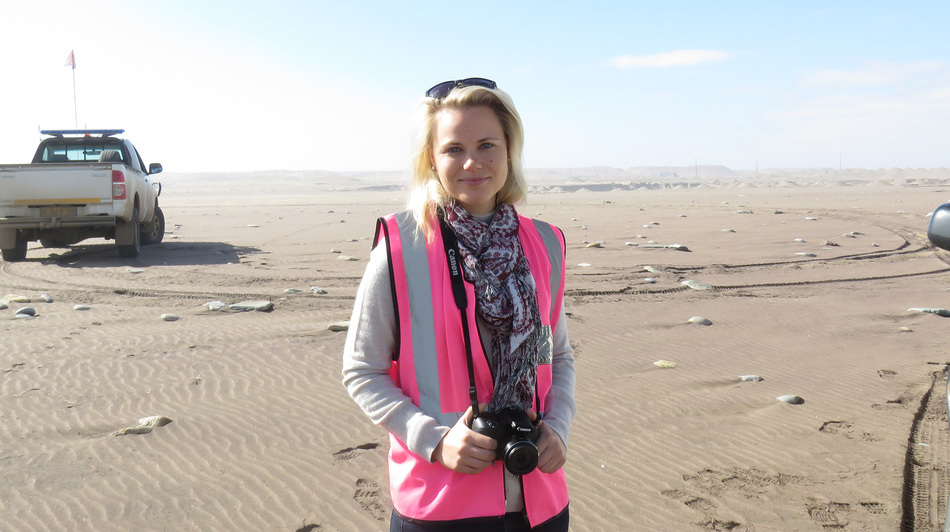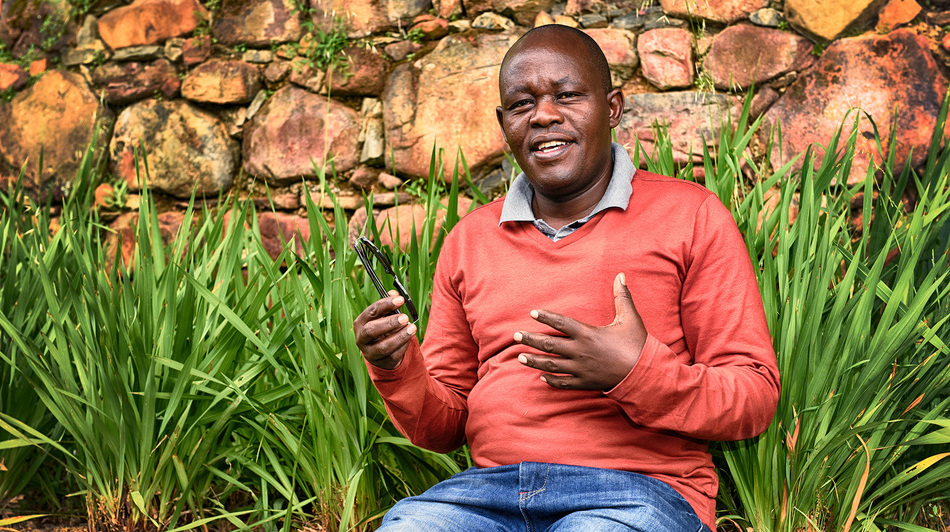Coloured Mentality’s comeback kid
14 December 2020 | Story Carla Bernardo. Read time 8 min.
Co-creator of popular web series Coloured Mentality, identity activist, filmmaker, land and housing activist, queer activist: There are many ways to describe Sarah Summers and many ways in which she has already made her mark on the world. Added to this is her story as the “comeback kid” who dropped out of university only to return years later, stronger than ever.
After matriculating from Springfield Convent School in 2008, where she’d struggled to fit in as a person of colour, Sarah enrolled at the University of Cape Town (UCT) for a BA in film production. She managed to pass the first year but at the end of the first term of the second year, she took a leave of absence.
It was a combination of stress about tuition fees (her grandmother had already taken out a loan to fund what she could), feeling disconnected from the university, and, in hindsight, an undiagnosed mental health condition that led her to drop out.
But a decade later, Sarah has one degree in hand and will graduate from UCT on 14 December with BA Honours, a successful WhatsApp series that stemmed from her research project and a long list of achievements accomplished in the time since first leaving the university.
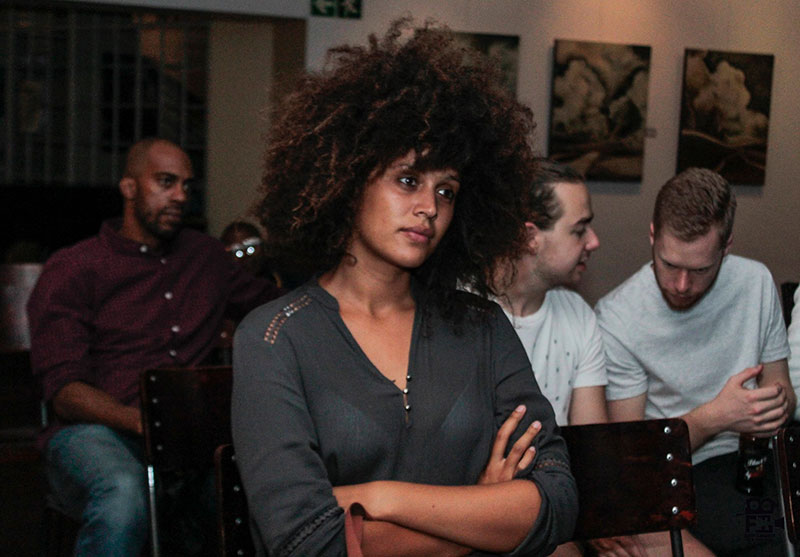
After dropping out, Sarah joined a spiritual movement, hoping to find herself. But while it initially helped, it would also be the environment in which she experienced her first psychosis, which led to her exiting the movement, depressed and even more uncertain of who she was and what she was meant to do with her life.
Four years down the line, aged 23, Sarah returned to UCT to complete her undergraduate degree. Initially, she struggled with being older than her classmates, but soon her maturity paid off.
“It was easier to focus on doing the work and not take everything so personally. Before … I was quite dramatic about my own ideas,” she said.
“But by the time I went back, I was ready to just put in the effort.”
She also had the help of her partner, Kelly-Eve Koopman, and the financial burden was gone, thanks to funding from the National Student Financial Aid Scheme. Five years after starting her degree, Sarah graduated from UCT in 2015.
“She was dealing with her own mental health challenges, including a few more psychoses.”
Her graduation film, Gatvol, was initially not a resounding success.
“I got the lowest mark in the class,” she recalled.
But Gatvol was one of only two films in the class that made it to the Durban Film Festival and now, some five years after she produced it, Sarah’s film will be shown at Festival Griot, a Brazilian film festival.
In the years that followed her graduation, Sarah worked on numerous film projects, one of which focused on mental health, depression and suicide. While working on this and other socially responsive projects, she was dealing with her own mental health challenges, including a few more psychoses. But it also led her to co-create her biggest project yet.
Coloured Mentality
Wanting to know more about herself and her identity, Sarah began meeting with different people who could help her on her journey. Among these was a group of Khoi activists who were embarking on the annual Indigenous Liberation Walk. The activists invited Sarah and Kelly-Eve along but before joining the 1 000 km walk, the two decided to delve deeper into their coloured identity.
In December 2016, while sharing a coffee in Bootleggers so that they could use the free Wi-Fi, Sarah and Kelly-Eve launched Coloured Mentality, a web series and conversation platform.
“I think within the first hour, there were just thousands of shares and comments,” said Sarah.
“And within that first couple of days, we had 10 000 followers. And then the media … we were getting interviews, calls from that first day, incessantly. And this is literally just Kelly and I doing our own thing, figuring [things] out.”
Suddenly, the two were being asked to answer “massive questions about coloured identity” while still trying to better understand themselves. They realised that what had started as an exploration of self had quickly become about more than just them.
“As soon as it became something that was beyond the two of us, we released it and decided to serve it,” said Sarah.
Since launching, Coloured Mentality has garnered over 36 000 likes and followers on Facebook; Kelly-Eve and Sarah have fielded numerous media interviews and spoken on panels alongside the likes of renowned scholar on race Associate Professor Zimitri Erasmus; and they were selected as part of the inaugural cohort of the Atlantic Fellows for Racial Equity (AFRE) in 2017.
Making a comeback
In the same year she joined AFRE, Sarah suffered another psychosis and was, around this time, diagnosed with bipolar disorder. And although she managed to travel across the world, complete the fellowship and host workshops on social media for activism, it was a difficult year.
“Oh, I had a lot of failures. I can talk for days about the failures I had that year,” she said.
Among these so-called failures was trying to set up her own media business, and another was a theatre production that didn’t go ahead. She spent many months in what she described as “bed depression”.
Things started looking up when she realised her love for digital communications and was offered the position of communications officer at the Social Justice Coalition (SJC), a mass-based social movement in the Western Cape.
Then, in 2019, while in her role at the SJC, Sarah returned to UCTʼs Centre for Film and Media Studies, this time for her honours.
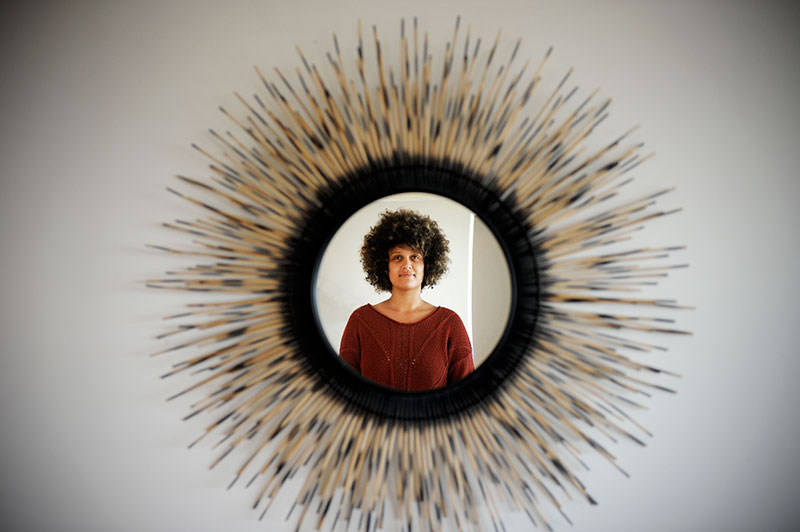
True to her journey, her research project was socially responsive. In the first semester, she focused on mental health stigma in the media, calling for discussions about how structural injustices impact mental well-being. Then, in her second semester, and linked to the first project, Sarah created Sound the Call, a WhatsApp voice note series.
“I was looking at how to create media thatʼs accessible, that creates intimate networks between … women and queer individuals, thatʼs really low in data but has an intimacy that social media lacks,” she said.
The topics of discussion all centred around care, particularly for black women. And along with a first-class mark, Sound the Call’s success is evident in it being in its third season and her receiving funding for its production.
Certainly, financial difficulties, struggles with mental health and an often gruelling journey to find herself could not stand in the way of Sarah making a comeback, over and over again.
 This work is licensed under a Creative Commons Attribution-NoDerivatives 4.0 International License.
This work is licensed under a Creative Commons Attribution-NoDerivatives 4.0 International License.
Please view the republishing articles page for more information.
Graduation 2020
We understand the disappointment that our students and their families feel about the impact that the global pandemic has had on the normal operations for graduation ceremonies. Please know that the decision to host virtual graduation celebratory events was not taken lightly. We congratulate the March and December 2020 graduates on their academic success during an exceptionally challenging year.
The March 2020 Senate List of Qualifiers was approved at the beginning of March and everyone on that list had technically already graduated in absentia with a confer date of 19 March 2020. The celebratory event video was made available online at 18:00 on Monday, 14 December to honour the March 2020 graduates.
The December 2020 graduands have graduated during the virtual graduation celebratory event at 18:00 on Tuesday, 15 December 2020.
Find full information, including Frequently Asked Questions, on the Graduation page on the Students website. You can also follow the celebrations on UCT’s Twitter page and the #UCTGrad2020 hashtag.

The December graduation season has seen the University of Cape Town (UCT) exploring uncharted territory, with thousands of graduates being honoured in virtual graduation celebratory events – the first of their kind for the university since the onset of the COVID-19 pandemic.
08 Feb 2021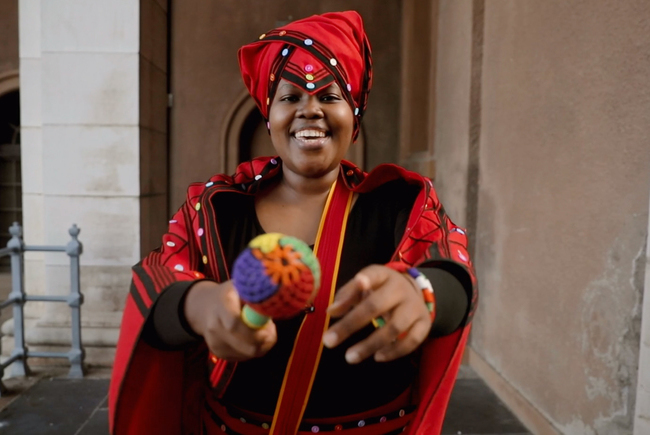
Siphokazi Jonas is one of the most prolific spoken word poets in South Africa, and her work has travelled nationally and internationally. An alumnus of UCT, Siphokazi writes and performs this poem that speaks to the challenge of graduating under the shadow of a changing global experience.
14 Dec 2020Videos – 15 December virtual graduation celebratory event

The University of Cape Town (UCT) deans congratulate the March and December 2020 graduates on their academic success during an exceptionally challenging year and wish them well in their future endeavours.
15 Dec 2020Videos – 14 December celebratory event for March graduates
Your names
The names of all of the 2020 graduates and graduands can be found in the ceremony programme PDFs. The names of all of the March 2020 graduates are accessible in the March programme PDFs that you can find through the index: just click through the March index to find your graduation ceremony group PDF. The names of all of the December 2020 graduands are accessible in the one December ceremony programme PDF.
Your photos
Graduates and graduands were invited to submit photos for publication as part of the 2020 celebrations. If you submitted a photo, you will find it in the gallery collections, divided into the March and December cohorts.
Our stories: inspirational graduates
The UCT News team has profiled a cross-section of inspirational graduands and graduates whose stories inspired us. To all those we haven’t been able to feature, we’d like to say: each one of you is an inspiration – to your university, your families and your communities. We wish you every success in the future.
December
March
#UCTGrad2020 – social media elements
Customised Facebook frames and Instagram stickers are now available on those social media platforms. Watch the tutorial videos here to see how easily you can get your online presence ready to celebrate during the virtual events.























